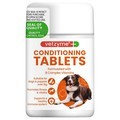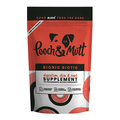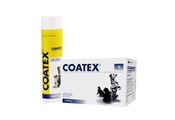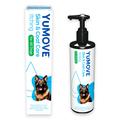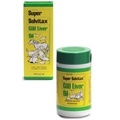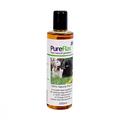The largest organ in our pet’s bodies is by far the skin, and lots of skin means lots of hair! In fact our feline friends have up to an estimated 60,000 to 120,000 hairs per square inch of skin, and our doggy companions 150,000. Most breeds shed at least twice yearly which equals millions of hair every year. All that hair can only grow properly with the right nutrition. Whether your pet has a skin/hair disorder or you are just looking for that glossy healthy coat shine, then a skin supplement is a great idea. Below are some key ingredients to look out for:
Omega Fatty Acids
We also call these ‘Essential Fatty Acids’ (EFAs) as the body cannot produce enough of them on their own, they must be found in the diet.
Omega 3’s include alpha-linolenic acid, docosahexaenoic acid, and eicosapentaenoic acid. These are mainly found in marine sources such as fish oil and phytoplankton.
Omega 6’s include arachidonic acid and linoleic acid.
EFAs are a crucial part of the normal skin barrier. This means if deficient then your pets skin and coat may not look normal, this is especially important in animals which are shedding frequently or have skin disease.
A good skin barrier helps prevent infection but also allergens from entering the body. Allergens are what triggers allergies and they vary depending on the cause of the allergy.
EFA supplementation may also reduce inflammation within the skin, the process for this is not entirely understood but supplementing with EFAs has been proven to reduce itching and inflammation in affected dogs.
Vitamin E
Vitamin E has a lot of essential body functions. It is an antioxidant, is involved in normal fertility, supports the immune system and is very important for normal skin health. In fact a recent study linked giving Vitamin E with a reduction in the severity of signs associated with Atopic dermatitis, a condition similar to Allergic skin disease.
Additional ingredients
Certain skin diseases benefit from specific supplementation such as that of zinc or amino acids. However supplementation with these products should only be done alongside veterinary advice, they can be toxic if given in too high doses.
What ways can I supplement these ingredients?
There are many available prescription diets you can transfer your dog onto, however these diets can only be used alongside your vet’s advice. Alternatively you can use a skin supplement added into your dog’s normal diet. EpiGlow contains a combination of Omega 3 and 6 fatty acids as well as vitamin E. If you are unsure as to whether your pet needs a skin supplement then please get in contact with our veterinary team at [email protected] and we would be happy to advise you further.
Written by: Dr. Nick Garside BVetMed MRCVS




